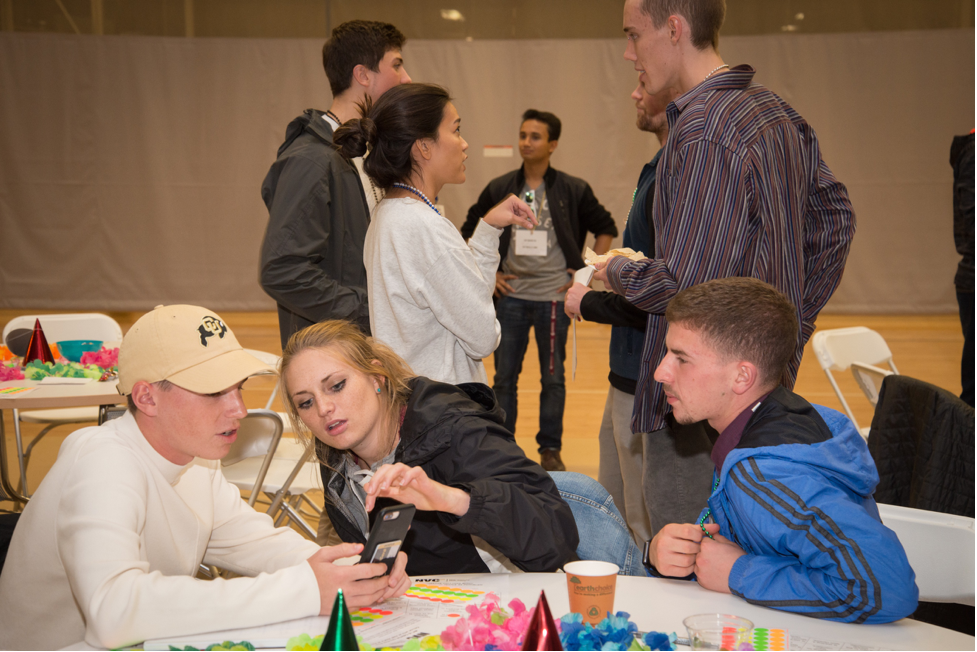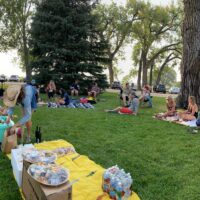By Maya Gurarie
Catch up on the latest trends in crowdfunding, shared resources, failure narratives, and game-changing products that help companies thrive during the pandemic. The University of Colorado Boulder (CU Boulder) Track draws on BSW’s theme of resilience to provide different flavors of events for various interests in the startup community.
“We are thrilled to be sponsoring BSW and show our presence in the CU Boulder Track. Our role is to connect startups and help the community gather. The university acts as a hub where people can come and go, and find connections,” said CU Boulder Innovation & Entrepreneurship Director Chris Gustavson.
Campus representatives will lead sessions from CU Boulder Innovation & Entrepreneurship Cross-Campus Team including the College of Arts & Sciences, College of Media Communication and Information (CMCI), the Leeds School of Business, Venture Partners, and the College of Engineering. They’re managing a fresh lineup of dynamic speakers and sessions. The CU Boulder Track will feature the following sessions, along with many others throughout the BSW schedule on May 10-14:
Out of the Crucible: Startups Who Thrive Responding to COVID-19 – Monday, May 10, 1:00 – 1:50 p.m. MDT
While many startups have been shelved or shuttered during the pandemic, some have positioned products to directly respond to the effects of COVID-19. These game-changers are making a difference and growing their business at the same time. Find out about four success stories of biotech companies in Colorado, such winner of the New Venture Challenge, HUG Solutions. This startup invented PortaVax, which is a portable vaccine carrier that uses insulation and dry ice to keep mRNA vaccines cold and transport them to rural areas.
How CU Boulder Can Help Your Startup – Tuesday, May 11, 11:00 – 11:50 a.m. MDT
Join the conversation about resiliency through shared community resources. Learn about all the resources at CU Boulder available to the community, how to access them, and meet some friendly students.
Exit to Community: Two Startup Journeys to User-Ownership – Wednesday, May 12, 9 – 9:50 a.m. MDT
How can startups transition from community engagement to community ownership? This session features two startups that are figuring it out. Hacker Noon, a tech publishing platform based in rural Colorado, moved from Medium to its own software thanks to a $1 million equity crowdfunding campaign. Groupmuse, a platform for organizing classical-music performances, is converting to a worker cooperative—and exploring how to include its musician community, too. Participants will come away with lessons from each “Exit to Community” journey.
CU + Rural CO. Entrepreneurial Stories & Insights from Outside the Front Range – Wednesday, May 12, 4:00 – 4:50 p.m. MDT
Is entrepreneurship different in rural communities vs. urban? How can we create stronger bridges amongst all of Colorado’s communities? Featuring rural entrepreneurs, learn their stories, challenges and successes. Participants will also find out about Energize Colorado and how they helped Coloradoans during the pandemic.
These amazing sessions are just a taste of what’s to come for the CU Boulder Track. This track is focused on nurturing the desire to have an impact in the community. During the course of their careers after graduation, students may start with an idea and then develop it along the startup continuum. Generally, many entrepreneurs reach success with startup products and services in their 40s or later.
Failure for You is Not the Same as Failure for Me – Thursday, May 13, 11:00 – 11:50 a.m. MDT
This facilitated conversation will crowd-source and explore the multiple meanings of failure across diverse cultural contexts. Themes ranging from failing forward and productive failure to dominant narratives about failure will seed the conversation centered on the question, “who gets to fail?” in entrepreneurial spaces.
“At CU what we try to do is show students what entrepreneurship can look like during their journey. It might not happen now. When they exit college, work for a company, and be an intrapreneur, we want to be a resource to plant those seeds. We’re happy to get that to the next stage,” said Gustavson.





